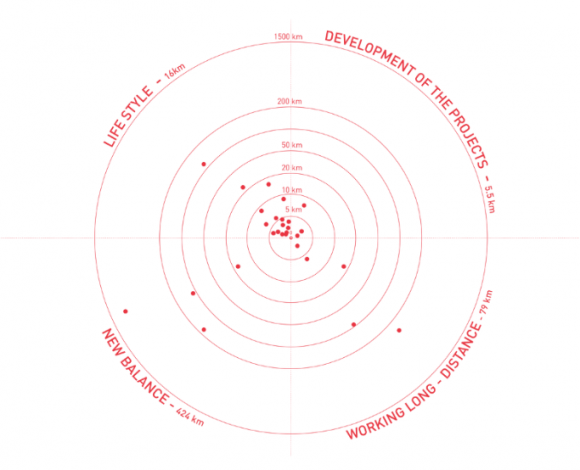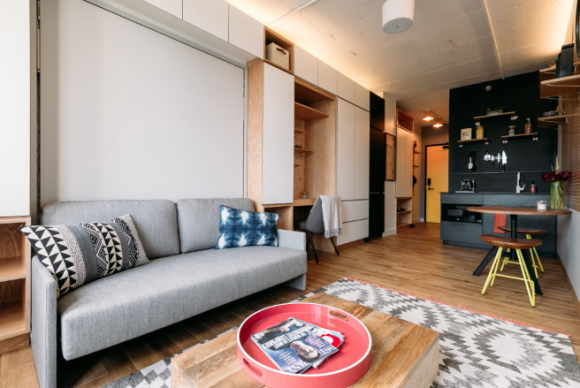- 3 Minute Read
- 22nd August 2018
Why is co-living becoming so popular?
Here at Office Freedom, we talk a lot about coworking and the numerous perks and benefits it brings to businesses all over the world. Coworking enables startups to establish roots and it opens up opportunities for growth; it also allows bigger companies to offer flexible working more easily, and let's face it, the spaces tend to look amazing.
And now it seems that the huge success of coworking has sparked a new phenomenon: co-living.
Rising rents and the recent focus on the UK's loneliness epidemic makes it easy to see why co-living is becoming so popular, especially with Millennials and Gen Z.
What is co-living?
If you live or work in central London, you might have noticed adverts on the tube promoting new co-living developments recently. Co-living blends private living space with communal facilities; it's a new-ish way to rent accommodation in cities, and like coworking did with commercial property, it's disrupting the residential real estate model.
Although it's seen by many as a contemporary thing, the co-living concept isn't actually new. People have lived in close-knit communities since the dawn of humankind, and the need for community and affiliation is as important today as it was when we were establishing ourselves as a species.
At present, co-living accounts for a relatively small proportion of the housing market, but it's growing year on year. As with coworking, co-living puts community and convenience at the top of its agenda.
"Coliving, coworking and the sharing economy in general are all manifestations of a cultural shift that places importance on experiences over material things and ownership."
Residents of co-living spaces share facilities with others whilst having the option to rent private apartment spaces within the building, allowing for a degree of privacy. Rent, concierge services, super-fast internet, utilities, taxes, room cleaning, community events and even things like gym membership are rolled into one convenient monthly cost.
Living in proximity to others, pooling resources and sharing experiences all help to alleviate loneliness and instill a sense of community. Coliving, coworking and the sharing economy in general are all manifestations of a cultural shift that places importance on experiences over conspicuous consumption and ownership.
Distance of co-living spaces from city centers

Whilst the highest concentration of co-living spaces can be found in inner cities, the trend is now spreading to outer regions.
Source: HOMY
Who's it for?
Anyone can rent a co-living space as long as they can afford it, but it's proving most popular (unsurprisingly) with Millennials, the largest consumer demographic and a generation for whom owning property can seem like a distant dream. Like with coworking, one of the most attractive things about co-living is the flexibility it offers.
For instance, if you work for a global business and have to relocate to Toronto for two months for whatever reason, it's easy because you can rent these spaces on a weekly basis. Likewise, if you're looking for a more permanent address, that's also fine.

A communal space at WeLive, which is part of flexible workspace operator WeWork.
Market trends
So far this year, millions of dollars in capital have been pumped into the sector. In the UK, property startup The Collective has revealed plans to double the size of its co-living portfolio and has ambitions in Germany and the US. Its Old Oak location in West London is the largest co-living space in Europe and is home to 500+ residents.
"Co-living means being together. There's someone from every walk of life to connect with and I think it's unique."
- Tjalling, resident at Old Oak in West London.
Common, an established US brand is also looking to expand its reach globally and secured $40 million in series C venture funding at the beginning of the year. In Asia, BMW Mini is set to convert an abandoned print factory into a micro apartment building in Shanghai - take a look at the designs on Dezeen.
The world is changing, and both coworking and co-living operators are a big part of that change. We can't help you with residential property, but if you happen to be looking for a coworking space anywhere in the world, say hello today!
